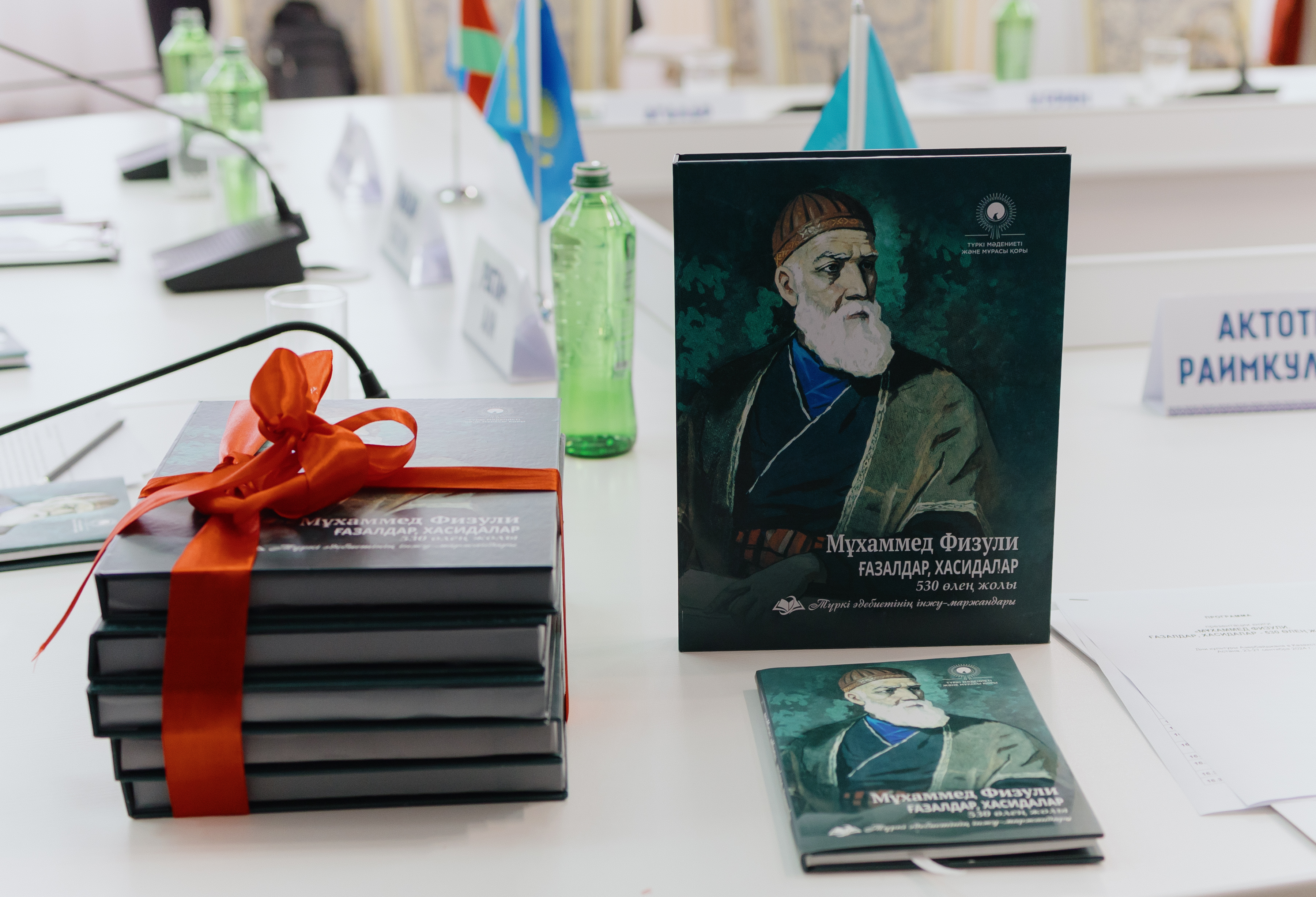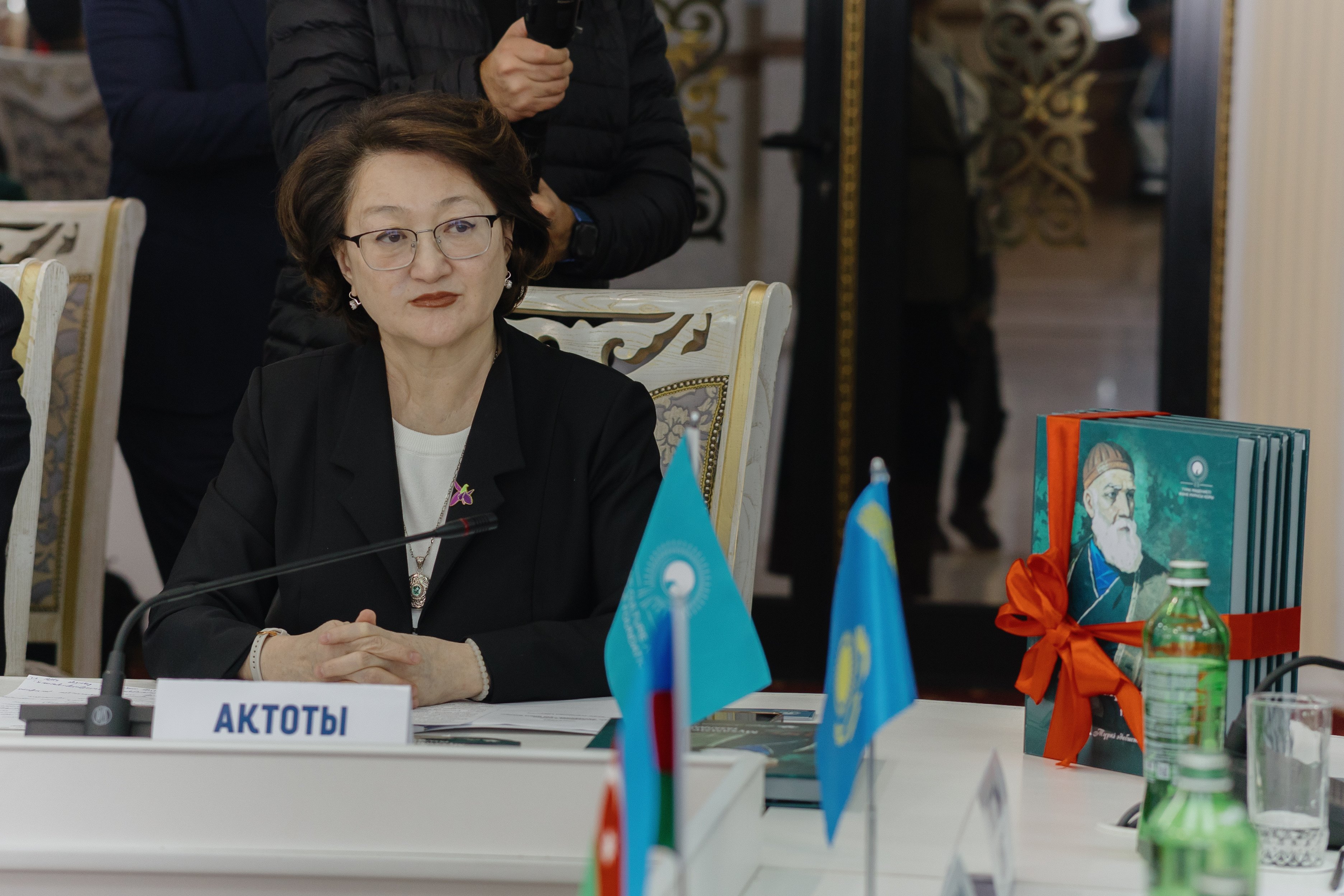The poems of Muhammad Fizuli translated into Kazakh

The solemn event took place in the National Academic Library of the Republic of Kazakhstan. The book consists of 22 ghazals and 6 hasids by the poet - 530 poems. The translation work will take a special place in popularizing the poet's heritage. The book was published by the International Foundation for Turkic Culture and Heritage.
“Abai, Fizuli, Nizami, Mahmud Kashgari are a common Turkic heritage. These are poets who really glorified the Turkic world. Muhammad Fizuli is the greatest poet. His ghazals are music in poetry. He was able to show the beauty of the language. He was a lyricist, a philosopher who conveyed his wonderful thoughts about the world, about love, about human values through his greatest poetry. And these works in the Azerbaijani language should be available to all of us, to the whole world. And I think our organization will continue to work in this direction,” said Aktoty Raimkulova, President of the International Foundation for Turkic Culture and Heritage.

In oriental poetry, Fizuli is known as a soulful poet and love lyricist. Fizuli wrote poems in three languages – Azerbaijani, Arabic and Persian. “Beng u bade”, “Sohbetul-asmar”, “Hafti-jam”, “Leyli and Majnun” are immortal monuments of verbal art. Fizuli's works were repeatedly printed in Istanbul, Tabriz, Tashkent and other major cities during the poet's lifetime, in the 16th century.
“For Fizuli, the word is not just a way of communication, it is the beginning of all creation. In his poem “Leyli and Majnun” he sang of the essence of the word itself. He explained that the word can be the most sublime, having sounded from the mouth of the Almighty. At the same time, there is also idle talk, in which there is no meaning whatsoever. Reading Fizuli's works, you don't find empty thoughts in them, everything there is very deeply connected with philosophy. All poets have beautiful lines that are especially memorable. They usually come to mind when the poet is mentioned. However, it is impossible to single out any particular lines in Fizuli. Everything there is inseparable and filled with deep thought. Fizuli, Navoi and other poets created the standard of classical poetry in the Turkic language. 500 years later, modern poets look at their works as a beacon, as a model,” said the famous Azerbaijani poet, screenwriter, writer Ilgar Fahmi.
The pinnacle of Fizuli's work is considered to be the lyrical and epic poem “Leyli and Majnun” (1536—1537). It tells the story of the love of a young man Geis, nicknamed “Majnun” (“Madman”) to the beautiful Leyli. The poem consists of 3096 beits (couplets) and is dedicated to the Ottoman ruler Uveis Pasha. Based on the poem, in 1907, Uzeyir Hajibeyov wrote the first Azerbaijani opera “Leyli and Majnun”.
“Fizuli himself said that poetry without philosophy is impossible. Every word of his is a delight to the ear. And they have incredibly deep philosophy. How he describes the sky, how he describes the stars! You can feel his knowledge of astronomy, medicine. He believed that if he did not preserve this heritage, it could disappear. In one of his philosophical treatises, he even briefly outlined the views and beliefs of ancient thinkers,” said Farida Azizova, a researcher of Fizuli's work, head of the department of “Middle Ages of Azerbaijani Literature” at the Institute of Literature named after Nizami Ganjavi.
During the solemn presentation of the book, Fizuli's works were performed by Azerbaijani and Kazakh actors, singers. Representatives of the creative intelligentsia, poets, translators and writers spoke about the importance of these translations for strengthening cultural ties. According to Aktoty Raimkulova, President of the International Foundation for Turkic Culture and Heritage, the new books will be available in all libraries of Kazakhstan.